Tackling the unexpected: a year with WHO as a UN Volunteer Communications Specialist
In early 2021, a group of dedicated communications specialists joined seven country offices of the World Health Organization (WHO) in different corners of Europe. They all joined their teams through the United Nations Volunteers (UNV) programme, as national UN Volunteers and they all hit the ground running to tackle COVID-19 communications.
When Aidana Yergaliyeva (Kazakhstan), Dayanch Hojageldiyev* (Turkmenistan), Malika Djalalova (Uzbekistan), Sara Kajevikj (North Macedonia), Parandzem Paryan (Armenia), Faris Mahmutovic (Bosnia and Herzegovina) and Rusudan Khotivari (Georgia) joined their teams, many countries faced – and still face – difficult COVID-19 situations. But that didn’t scare them off.
Some of them already had first-hand experience of the virus: Malika Djalalova, UN Volunteer Communications Specialist in Uzbekistan, got infected with the Novel Coronavirus only two weeks after applying for the position. "It was indeed a bit ironic, but on a positive note, the research I did on COVID-19 while ill was really valuable," she says. "Joining WHO during the pandemic only made the assignment more interesting."
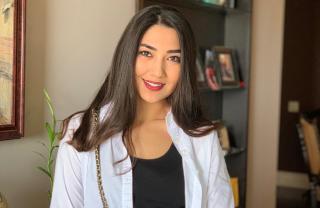
A baptism of fire
The 'UNV dream team' (their nickname within WHO) quickly had to wrap their heads around WHO's technical terminology and the European Programme of Work 2020-2025 – its vision and roadmap for better health for all citizens in the WHO European region.
Weekly calls with the head office in Copenhagen were set up from the very beginning to provide direct support to the new colleagues, working from various time zones.
When I started, everyone was working remotely because of COVID-19 restrictions. I did not meet my colleagues in person until six months after having started, so internal communications were sometimes more challenging than external. However, my team was great and so supportive, as was the contact with the WHO head office in Copenhagen. --Parandzem Paryan, UN Volunteer Communications Specialist with WHO in Armenia
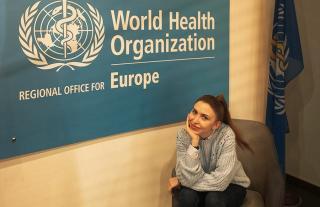
At the beginning, some of the UN Volunteers did face misconceptions about their skills due to the 'volunteer' label. For WHO, however, their value was clear.
"UNV offers a great opportunity for professionals to gain invaluable experience within the UN system. In order to be considered for UN Volunteer assignments, candidates need to show strong experience in their resumes, and they have to pass competitive application processes," explains Faith Vorting, Senior Communications Adviser in the Regional Director’s Division, who spearheaded the UNV recruitment pilot.
Throughout the year, the volunteers provided crucial support to country offices that lacked dedicated communications staff, and quickly became part of the broader region-wide communications team. --Faith Vorting, Senior Communications Adviser in the Regional Director’s Division, WHO
Navigate, communicate...
All UN Volunteer Communications Specialists have been working strategically to increase the presence of public health issues in national headlines and raise awareness of WHO's work at country level.
The strategic part is what I’ve enjoyed the most: increasing visibility, making sure our messages are heard and strengthening our network with the national media landscape. --Sara Kajevikj, Communications Specialist with WHO in North Macedonia
She is echoed by Faris Mahmutovic, Communications Specialist in Bosnia-Herzegovina. "The biggest success was to progressively see the country office’s visibility and presence in the media increase, and note how the risk communication and community engagement projects directly impacted COVID-19 vaccination promotion."
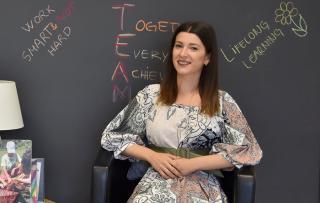
For Rusudan Khotivari, UN Volunteer Communications Specialist in Georgia, one of the highlights was the WHO report on Financial Protection, issued in July 2021. "Although the report was rather technical, our work to translate complicated terminology into language that would be easily understood by a larger audience definitely paid off," Rusudan explains.
The report explores the impact and burden of high out-of-pocket costs for ordinary people seeking health care, and received huge media coverage and resonance among the public, influencers and politicians. --Rusudan Khotivari, UN Volunteer Communications Specialist with WHO in Georgia
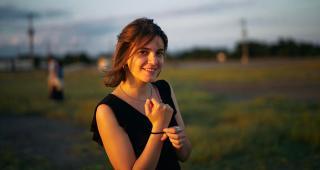
…and innovate
Aidana Yergaliyeva, UN Volunteer Communications Specialist in Kazakhstan, decided to complement outreach to the general public, and children in particular, through a COVID-19 awareness-raising product that was out of the ordinary. In consultation with her colleagues, the idea of a comic was born. This comic, called "White Capes: fighting the invisible", a story about scientist superheroes fighting COVID-19, is set to be published during the first quarter of 2022.
Knowing that no two days are ever the same is something Aidana has hugely appreciated during her time with WHO. One day, as she was out practicing photography techniques, she happened to take a few pictures of an Akita Inu dog.
“I showed the owner of the dog my photos. Unexpectedly, this resulted in them being part of an exhibition, widely covered by media, raising awareness on stray dogs and animal rights in Kazakhstan," Aidana says. "The exhibit was visited by the Senate’s working team drafting new legislation on responsible treatment of animals, which is of course linked to zoonotic diseases. So, maybe I not only contributed to health awareness, but also to animal rights!"
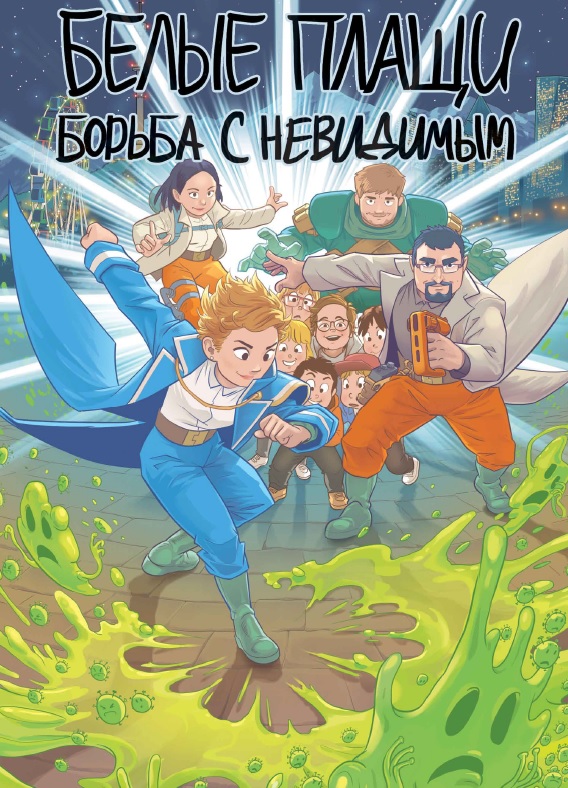
*Dayanch is now working with USAID.
Legal Disclaimer:
EIN Presswire provides this news content "as is" without warranty of any kind. We do not accept any responsibility or liability for the accuracy, content, images, videos, licenses, completeness, legality, or reliability of the information contained in this article. If you have any complaints or copyright issues related to this article, kindly contact the author above.
